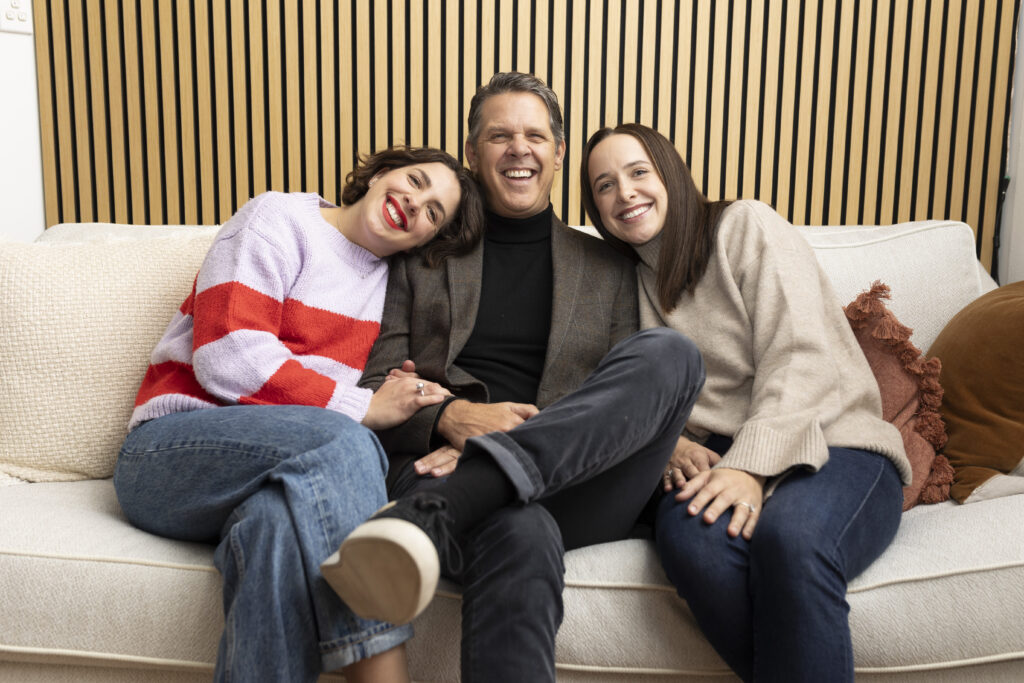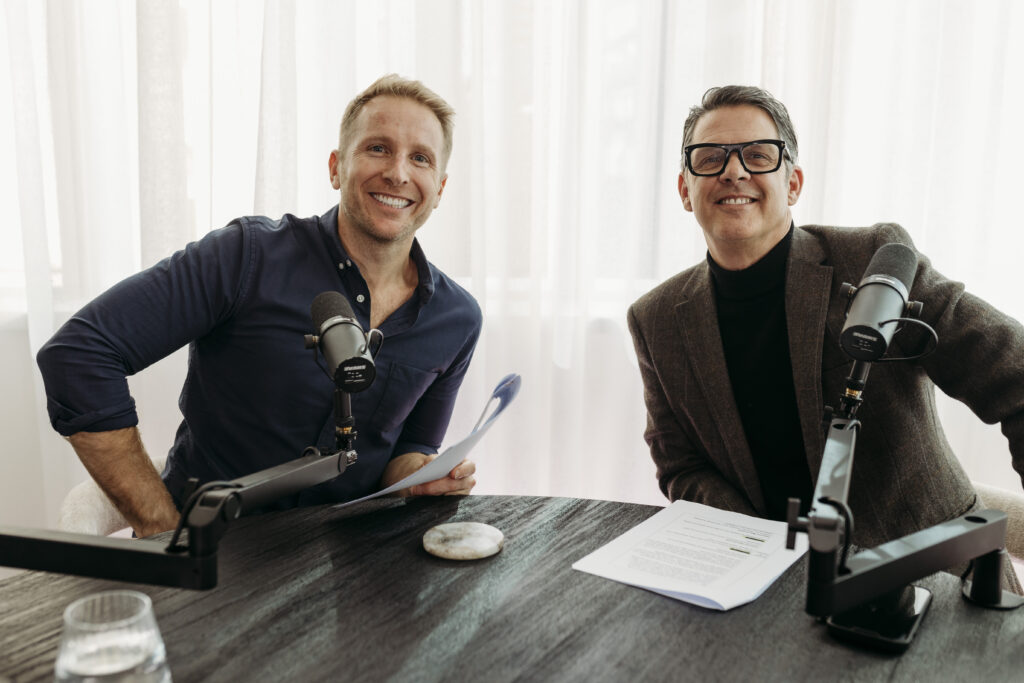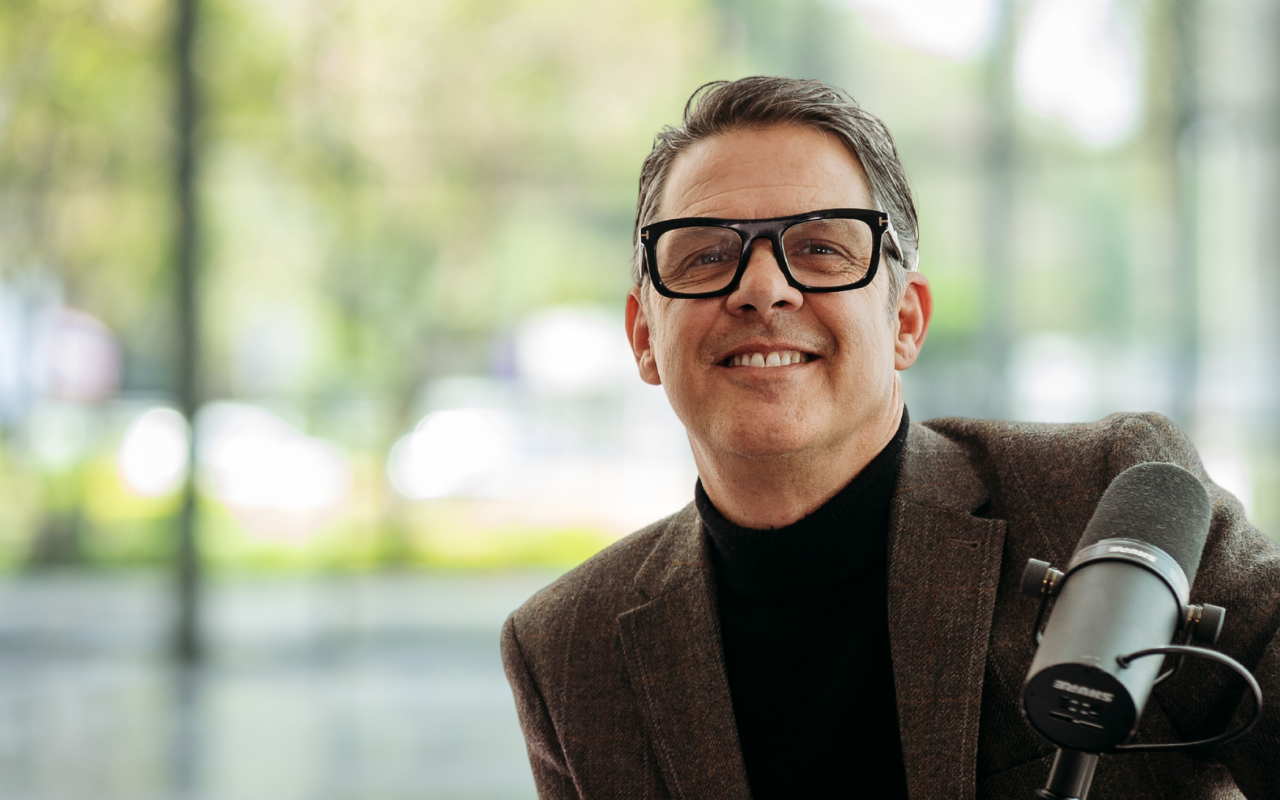Australia has an exciting new podcast called “Hold the Moment”. It’s co-hosted by respected journalist and Dementia Australia ambassador Hamish Macdonald, whose father has dementia, and dementia advocate Jim Rogers, who is living with younger onset Alzheimer’s disease, diagnosed in 2022. The podcast taps into real life stories and experiences of people living with dementia, along with great tips to help with living well after diagnosis.
While working as a property coach and developer, I noticed that I was experiencing persistent brain fog and forgetfulness for quite a long period of time. I put this down to possible side effects from medication for my high cholesterol, or even potentially to the stress of my busy life and heavy workload.
Whenever I visited my GP, I’d use the opportunity to mention the symptoms I was experiencing but each time he’d ask me a few memory questions (which I managed to get right) and he reassured me I was fine. I left feeling I was imagining it or was just overreacting and indeed didn’t have anything to worry about.
Much later, during a routine medical appointment, my cardiologist requested that I switch my phone off after its persistent ringing. She watched transfixed as I became overwhelmed and confused, fumbling for what felt like several minutes to carry out such a simple task. Looking back now, I’m sure I must have looked quite ridiculous … right? But this was the type of thing I was secretly experiencing and had no idea why I was forgetting the simplest things at times.
She asked if I’d been experiencing this type of thing often. I said yes, relieved that at last someone was listening. I’m eternally grateful to her for noticing something was wrong, which led me to an early diagnosis.

Getting the diagnosis
She referred me to a specialised memory clinic and after several appointments, extensive cognitive testing, followed by a series of brain and PET scans, I was diagnosed with younger onset Alzheimer’s disease in 2022. Alzheimer’s disease is one type of dementia and the most common. Gaining an early diagnosis is often quite challenging for many people as the symptoms often slip by unnoticed until much later when they become significantly more obvious to professionals.
Dementia is often diagnosed when progressive cognitive decline has occurred and had a noticeable impact on a person’s ability to carry out important everyday activities. It is a clinical diagnosis, supported by neuropsychological testing, a history from the patient and subjective impairment in memory and other cognitive functions.
Neuroimaging is used to support these findings, and to exclude other possible causes of cognitive impairment. Other tests are often carried out to rule out other causes of cognitive changes such as thyroid disease, vitamin deficiencies or infection, which weren’t evident in my case. Sadly, if this isn’t picked up early on, people can miss the opportunity to start potential medication options and interventions early, which may help to alleviate the symptoms of this disease.
The diagnosis itself is a devastating one. Unlike most serious illnesses or many cancers these days, Alzheimer’s is terminal, there is currently no cure. However, some symptoms of the disease can be managed. Dementia is a brain condition resulting in impaired memory, thinking and behaviour, where a person’s abilities deteriorate over time. The disease will also usually affect language, attention, mood, judgement and other aspects of behaviour over time. Once you begin to travel down this lonely road, discovering the endless information, medical articles and statistics available, you realise the road you’re heading down is far from pleasant. It is a road leading to grief — grief for the loss of the future you had imagined.
Finding support with Dementia Australia
Absorbing the diagnosis and trying to come to terms with it took me several months, it takes a while to pull yourself out of that black hole you dive down. My neurologist stayed in touch and referred me to Dementia Australia. Immediately, they took me under their wing and arranged for me to attend their offices to take part in their “Living with Dementia” program. They offer this to newly diagnosed dementia patients to help them learn about dementia and what you need to do following your diagnosis. It covers coping with change, relationships and communication, future planning and staying healthy.
The relationship with Dementia Australia became a great source of comfort, which was invaluable to me, and so a strong friendship with them began. Later when asked to become an advocate to help raise awareness, I jumped at the opportunity. At first, I only carried out a few small interviews and articles for them, but eventually they asked me to become the co-host of a new podcast they were developing. They wanted me to bring some genuine insight as someone living with Alzheimer’s disease and my personal point of view paired with my very charismatic co-host, journalist and television presenter Hamish Macdonald, whose father has dementia with Lewy bodies and Parkinson’s disease.
So just like that, “Hold the Moment” was born.

A podcast with a difference
Hold the Moment is a podcast from Dementia Australia, produced by Deadset Studios, full of real stories about life after a dementia diagnosis. As you listen, you’ll hear about moments of grief, confusion and anger. But there’ll also be joy and hope as you navigate this new chapter. You’ll hear from people living with dementia and how they manage issues such as telling others about their diagnosis and getting their affairs in order. Plus, lots of tips and strategies they can use in their life – from exercise, to getting around town, to sleep and often the lack of it! We also chat to a few experts along the way for advice on the difficult business of getting your legal affairs in order along with appointing a power of attorney and an enduring guardianship for medical decisions.
For me on a personal level being involved in something as powerful as a podcast like this has been quite cathartic and extremely rewarding. It brings awareness to people who have very little to no knowledge of any type of dementia which is groundbreaking. Not only do patients diagnosed with this brutal and aggressive disease feel completely isolated once the devastating news sets in, but often they know no one with the condition. So, to be able to sit quietly when you’re ready or in the dark of night and listen to voices of real people who have already walked the walk is not only highly informative but a massive source of comfort. I can’t praise Dementia Australia enough for their ongoing support programs and for investing in such a smart timeless podcast that can be shared and listened to by thousands of people around the world who have been touched by this awful disease in some way.
In 2024, it is estimated that there are almost 29 000 people living with younger onset dementia, expected to rise to almost 41 000 people by 2054. Younger onset dementia refers to diagnosis of any form of dementia in a person under age 65. This can include people in their 30s, 40s and 50s. People with younger onset dementia accounted for 7% of the total estimated number of people living with dementia in Australia.
Currently more than 55 million people have dementia worldwide. Every year, there are nearly 10 million new cases, which is staggering. We need to act, we need awareness, we need donations, and we need a cure – NOW!
After experiencing persistent brain fog and forgetfulness, Jim Rogers was diagnosed with younger onset Alzheimer’s disease in 2022. Now a Dementia Australia advocate and co-host of the Hold the Moment podcast, Jim shares his journey, offering hope and insights to others facing similar challenges.
The statements or opinions expressed in this article reflect the views of the authors and do not necessarily represent the official policy of the AMA, the MJA or InSight+ unless so stated.
Subscribe to the free InSight+ weekly newsletter here. It is available to all readers, not just registered medical practitioners.
If you would like to submit an article for consideration, send a Word version to mjainsight-editor@ampco.com.au.

 more_vert
more_vert
It’s great when I happened to see the above valuable article. Will definitely follow “Hold the Moment” podcast. Just wonder how do I we get this Pocast.
Could it be emailed to us?
Secondly, it fantastic to have the person living with Dementia involved in this Potcast. However, is there any support for the family member who live with this person? Especially when it is not formally diagnosed. As there are lots of confusions, frustrations and so on….
Update. Hamish McDonald’s father is deceased. RIP.